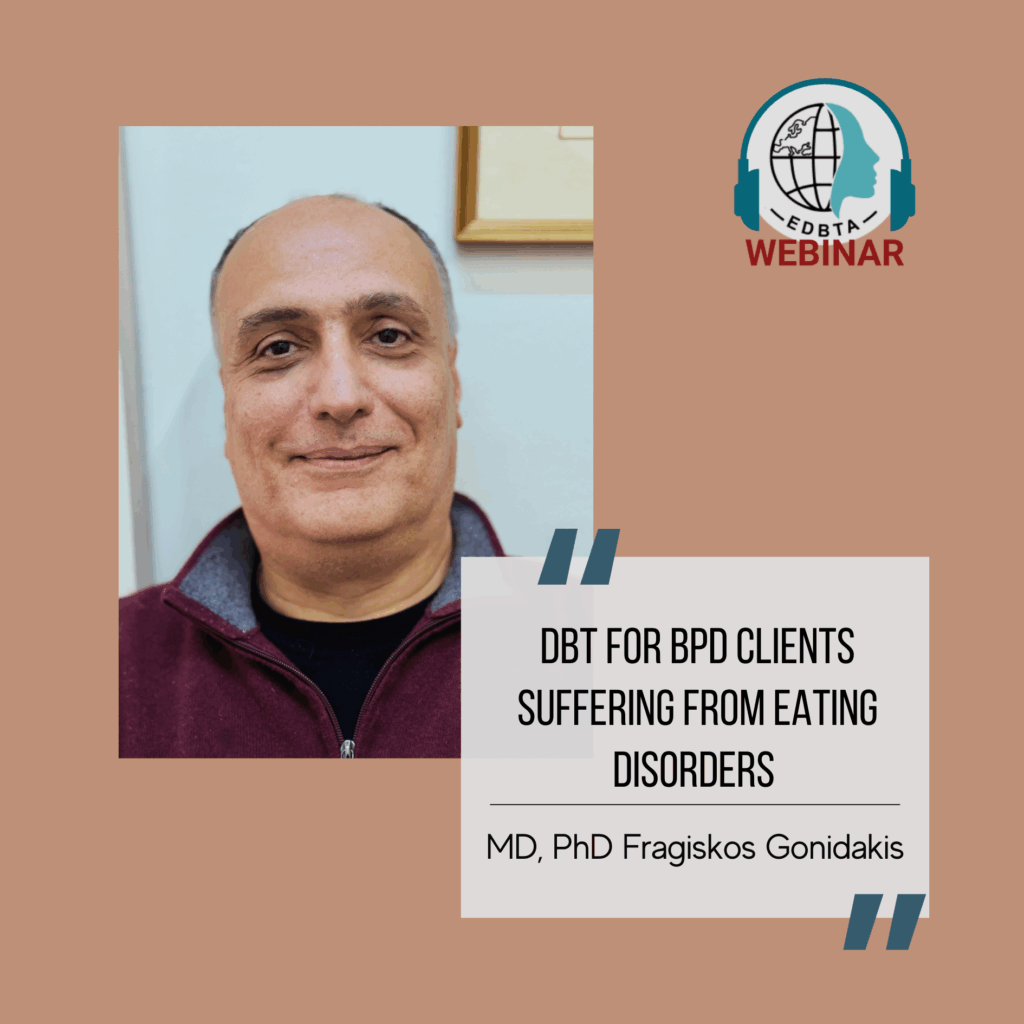In his webinar Fragiskos will focus on practical strategies for clinicians. He will explore how to adjust standard DBT protocols when working with clients who present with serious eating disorder symptoms. Session will offer insight into how to meet the needs of this high-risk, hard-to-treat population using DBT’s flexible, principle-based approach.
While standard DBT was originally developed for chronic suicidality and BPD, growing evidence supports its effectiveness for individuals with comorbid eating disorders, particularly when emotional dysregulation, impulsivity, and interpersonal difficulties are central features. These clients often struggle with high ambivalence about change, intense shame, and difficulties with body image and identity. Factors that can undermine traditional ED treatments. DBT offers a structured framework to build motivation, reduce life-threatening behaviors (such as severe restriction or binge-purge cycles), and target the emotional and cognitive patterns that maintain disordered eating.
Fragiskos will address how to prioritize treatment targets, modify skills training to address ED-specific behaviors, and support clients in tolerating distress without using food-related coping. His experience working at the intersection of BPD and eating disorders makes this a valuable session for clinicians seeking guidance on one of the most challenging dual-diagnosis presentations.
